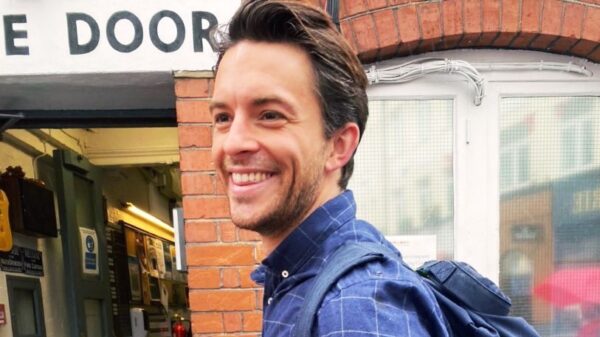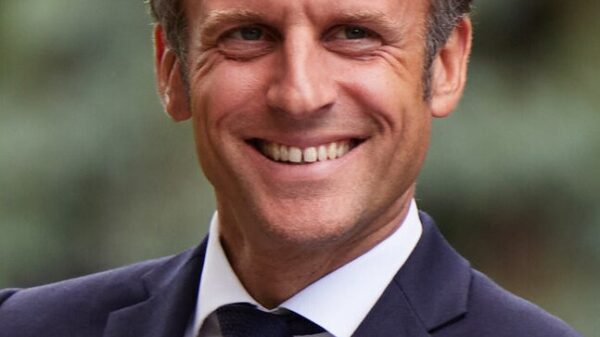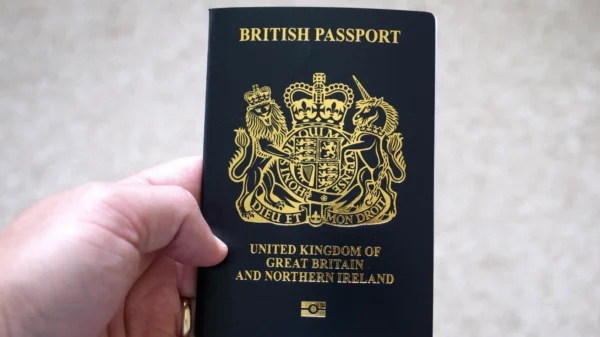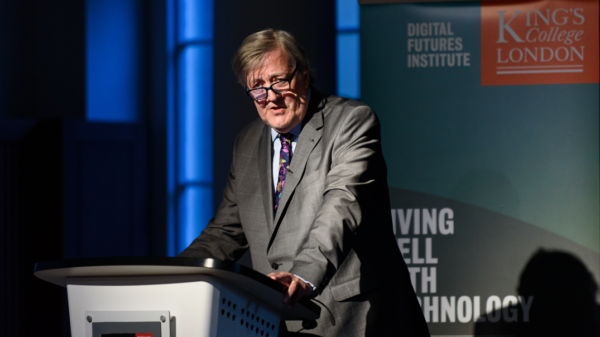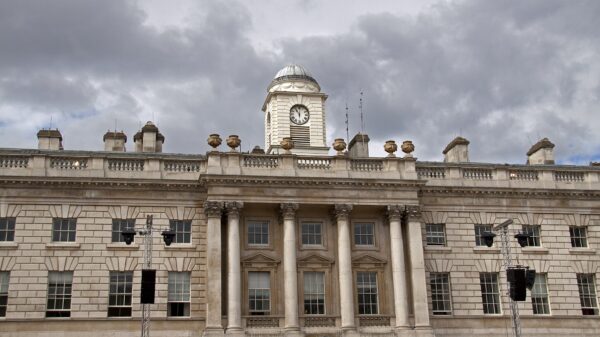Staff Writer Mohana Miltra examines the recent TV adaptation of “Fellow Travelers” and considers its ability to resonate with today’s audiences.
From political scandals to witch-hunts, “Fellow Travelers” has got it all! First premiered on Showtime in 2023, this historical-political thriller mini-series weaves an emotional tale of navigating personal conflicts and overcoming social challenges. Taking up Thomas Mallon’s novel (following in the footsteps of the hugely successful opera adaptation), the TV series attempts to put its own unique flair on the narrative. Navigating love and betrayal amongst incredibly complex characters, “Fellow Travelers” dives right in – all while confronting the daily horrors of living in society regardless of the era (honestly, relatable).
For a modern audience
Ron Nyswaner attempts to adapt the 2007 Thomas Mallon novel “Fellow Travelers” by stretching out the story of the original characters over decades. From the book only dealing with the Red and Lavender Scares (the persecution of suspected communists and homosexual individuals in government offices), the show dramatises queer history while taking liberties with real-life events.
It’s the 80s and the AIDS crisis has been crushing the spirits of the queer male community in America. Against this backdrop we meet Hawk Fuller – a successful diplomat and family-man celebrating a promotion. However, the appearance of an old acquaintance, Marcus Gaines, bearing the news of Tim Laughlin having contracted the HIV virus is quick to shatter his reality. Finding out that an old friend is in the last stages of AIDS is enough to make someone crestfallen; it also doesn’t help when that friend is your ex.
Flashback to Hawk and Tim’s first meeting and we find ourselves in the 50s when the Lavender Scare has begun to affect Hawk’s professional life. Eager to avoid any emotional entanglements with the men he secretly sleeps with, Hawk is vigilant when it comes to protecting himself. Eventually, he sets off a four-decade long situationship with Tim, marked by his perpetual readiness to sacrifice anyone to secure his own safety. From getting Tim a job to outing him to the state department during the witch-hunt against homosexual individuals in workplaces, their relationship is consistent but tense.
Hawk’s instinct to preserve his secure position in society leads to a marriage and kids, a move that becomes a point of conflict between the two men. Tim, meanwhile, sets off on a journey of self-discovery, attempting to reconcile his faith in both God and Hawk – and ultimately losing it in at least one of them.
An underrated cast carry the story
In his portrayal of Hawkins Fuller, Matt Bomer simultaneously exhibits a cold-hearted demeanor and delivers an honest, convincing performance. He flawlessly conveys Hawk’s fear of discovery, affection for Tim (despite the toxicity of methods he uses to show it) and the tragedy of unfortunate choices he has to make. Meanwhile, Jonathan Bailey shines as Timothy David Laughlin, proving his versatility beyond the role of Anthony Bridgerton in the hit Netflix show that recently brought him immense fame. Indeed, Bailey’s chemistry with Fuller is every bit as heartbreaking and believable as with “Bridgerton”‘s Simone Ashley. It is evident that the actor has mastered the act of pining after his emotionally unavailable parallel-lead and his Critics Choice Award for Best Supporting Actor for “Fellow Travelers” stands as strong proof.
On the other hand, Jelani Alladin is consistent and stable in his version of Marcus Gaines as he attempts to navigate a world of discrimination and come out winning. He successfully guides the character from a stage of confusion and anger to securing a happy life with his partner and adopted son Jerome. Noah J. Ricketts is resplendent as Frankie, a drag queen and Marcus’s love interest. He approaches the complex role with the grace and maturity it demands – and looks absolutely glamorous while doing it. In spite of the characters’ suffering from poor writing choices near the end of the show, the actors manage to deliver the story convincingly.
At the same time, Alison Williams‘s performance as Lucy Smith (Hawk’s wife and the daughter of Senator Smith) unfortunately goes largely unnoticed, partly due to the lacking script. Indeed, for most of the show her character’s only purpose seems to be serving as Hawk’s conscience and she comes into her own only at the very end.
Does “love” truly forgive all?
“Fellow Travelers” is faintly reminiscent of “Brokeback Mountain”. Tim and Hawk continue to echo Jack and Ennis throughout, from the angsty character divorcing a wife and battling repressed homophobia to the eventual death of his partner. However, unlike with the film, I find it difficult to relate to the series equally. As “Fellow Travelers” proceeds, the showrunners seem to fall into the cliché of juxtaposing a hot, hypermasculine and angsty character (cue, Hawkins Fuller) with another adorable, soft and can-do-no-wrong one (I mean Timothy Laughlin here; forgive me, I know Jonathan Bailey is hot too).
Admittedly, in the time period the series is set, it must have been easier to resemble Hawk than Tim and no one can be blamed for it. Acting in one’s own favor in a system rigged against men like you needs no excuse. Still, the show makes Hawk’s character progressively more difficult to sympathise with, given he keeps betraying his loved ones only to forget and forgive himself moments later. It’s especially jarring that while he maintains his suave and all-knowing air throughout, the writers clearly attempt to make the audience root for a happily-ever-after for him and Tim.
Another important aspect is that marketers have promoted the show as a love story for the ages; this makes me wonder how anyone could objectively believe that a person deserves a partner like Hawk. Is it alright to urge the audience to shed a few proud tears when Hawk is sweet to Tim once in a blue moon and ultimately excuse him for being a bad father and, overall, a toxic partner?
Contrast and conflict
Throughout the show, Hawk’s desperate attempts to hide his true identity contrast starkly with Tim’s evolution from a naive and young Catholic boy to joining the army to becoming a queer rights activist. Meanwhile, Hawk starts as a war hero but turns into a closeted man in the state department, eventually marrying the senator’s daughter. The last time we see him, he’s a divorcee and father to a daughter (and a deceased son). Tim’s character development is comforting to watch, despite his early death from AIDS – a strong juxtaposition with Hawk’s desperate attempts to cling to his life and marriage.
Religion is another major point of internal conflict for Tim. As a white Catholic man, Tim finds his sexuality to be at odds with what he was taught. Not only does this accurately depict a crisis of faith, but also, later on, allows the viewers to get a glimpse into what it’s like to reconcile homosexuality and Christianity.
Intimacy as a plot device in “Fellow Travelers”
Even though I feel quite confident that everyone could find something of value in the series, I certainly wouldn’t recommend it to children. This is largely due to the sheer number of sex scenes that appear in almost every episode. Intimacy is a major and integral part of this story – it allows us to see Hawk at his most tender or in his most dominating form. He makes it clear from the very beginning that his sexuality is a purely physical need that requires satisfaction from time to time. From wandering around cruising spots after dark to being reluctant to form any emotional entanglements, the idea of being in love with a man does not even occur to him at first.
Over the years, he seems to grow from craving complete control over his partner in bed as a way to assert his hyper-masculinity to a willingness to give it up – still, only for Tim. This new power dynamic keeps shifting between the two, keeping us on our toes with the ever-unique sex scenes. Although some disagree, I believe that the overly-explicit nature of certain parts of the show does in fact contribute to the plot. “Fellow Travelers” is one of the rare series where intimacy between two men is allowed to be real and unapologetic. We experience a refreshing change from the innumerable gratuitous depictions of straight-couples’ sex that most of today’s media subject us to.
Representation: too much or too little?
The show manages to be historically nuanced without simplifying its characters down to the discrimination they are subject to, whether racial or sexual. Be it through the bigotry faced by the black gay journalist Marcus or the persecution of communists and queer individuals in their workplaces, “Fellow Travelers” does a commendable job at portraying the intersection of social identities. The branding of ‘deviants’ in 1950s America, namely the picture of the second Red Scare and the Lavender Scare, is horrifyingly all too real.
Frankie’s character, a black gay drag queen turned queer-activist, acts as an excellent example of what the life of a gay man of colour in 1950s America looked like. The story of Hawk’s colleague Mary also provides some tragic insights into her circumstances as a government employee attempting to keep a lesbian relationship under wraps – and ultimately failing to do so. Regrettably, as the show proceeds, Mary, Marcus and Frankie seem to slowly fade into the background as Tim and Hawk are given the center-stage. This makes me wonder if these characters came across as victims of token diversity to the audience solely because they weren’t given enough time to develop.
Relevance and real-life impact
Since most of us grew up watching gay characters getting killed off and queer rom-coms clearly intended for heteronormative audiences, “Fellow Travelers” is a much-needed change. Informative about the reality of gay men, it goes without saying that most people should be able to relate to the story – either because of their own experiences or simply empathy.
This is especially relevant in today’s day and age, when American ex-president Donald Trump proudly claims to view Roy Cohn, a man who played a pivotal role in the persecution of homosexual individuals during the Lavender Scare, as a mentor and role model. (Quite ironically, not only do some believe Roy Cohn to have been a closeted gay man himself, but also raise questions about Senator McCarthy’s “masculinity.”) In this light, the showrunners’ idea to take the book’s source material and situate it within this specific time context has been successful exactly because it allows for representing a large chunk of queer American history.
Flaws
Still, “Fellow Travelers” does fall short in some aspects. Aside from the blatant romanticisation of a toxic relationship, the show also has a more practical shortcoming: in spite of the commendable job on the hair and costumes (excusing some borderline scary wigs and mustaches), the makeup department disappoints in the last few episodes.
As time passes, we see Hawk develop a few tiny wrinkles and a bit of graying hair but otherwise look exactly the same. Tim shows the same micro-changes, along with a few strategically placed spots or lesions in reference to his AIDS diagnosis. It feels difficult to believe that a man supposed to be at least in his sixties and reportedly in the last stages of AIDS is able to look so presentable physically. Thankfully – once again – the actors’ skills prove sufficient to partly alleviate this problem.
Conclusion
All in all, “Fellow Travelers” is a masterclass in human emotion and queer lives exploration that manages to create a long-lasting and heartbreaking impression in the audience’s mind. Dealing with the Lavender Scare, McCarthyism, the Vietnam War and the AIDS crisis, the series clearly takes up a lot of heavy and demanding source material and largely manages to do justice to it. While sometimes a bit over-dramatic and slightly unrealistic, the show is sincere and well-meaning. In the end, it successfully pulls off a story that has never been shown before and proves to be an entertaining watch – no matter what.



